
I have learned two important lessons with this latest “saved by the bell” kind of intervention on behalf of Valve with Steam Game Festival (Summer Edition) bringing plenty of demos to try out – my wishlist needed some well-deserved pruning and there's an absolutely ridiculous number of RPGs out there, self-proclaimed or otherwise. Particularly in tactical domain. Making matters even worse I had more demos planned, but just gave up on writing summaries for quite a few of them. This is a nice way to raise awareness for all the indie projects out there, though. By the time this is getting posted there should still be few days left to try out your favorites.
In Multimedia related news I've knocked out another major anime show that has been on my mind since forever, but never had the time to sit down and watch properly. It did not disappoint. Now I'm just let wondering what to watch next.
Developers are honest about the fact that Magin: The Rat Project Stories Very much a vertical slice of what the game is supposed to be I didn't mind a simple story about a boy looking to recover his mother from a local pub. Think adventure game meets card-driven combat with some major narrative decisions to be made yet the real deal here is dealing with out young protagonist's mental balance. In both adventure and combat parts due to most skills being inherently tied to, let's just call them PURPLE and ORANGE ends of the emotional spectrum that keeps fluctuating as you play. Shifting deeper into either gives bonuses and penalties. If you choose to opt out of combat, something demo offers when you start, this makes for a brief offering mainly enchanting with this dark fantasy look. Less so with Tolen's VA who managed to get on my nerves in shockingly short amount of time.
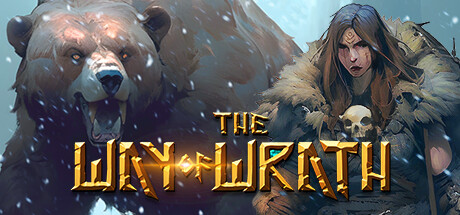
The Way of Wrath's premise based on what is shown here is actually rather interesting as you assume control over a party of warriors in ancient world while they use primitive weapons and bone armor to get into crude encampment they lost earlier due to betrayal... and maybe something else. You engage with the game in group turn-based combat, but damn does jank permeate every facet of the game. From minor visual bugs to getting caught up on geometry, general performance level and infinite load screens. Excusable for a beta, though. Bigger worry is how seemingly worthwhile character creation never really comes through in rather basic combat system. Not to mention all the non-combat options that are just there for show because this is poorly chosen scenario to showcase those. I am not particularly sold on the art style either which looks much better in screenshots over actual play.
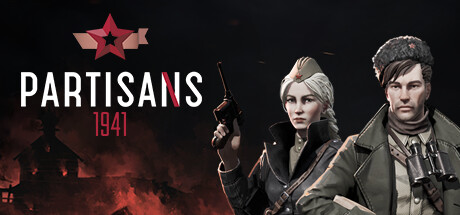
It would be extremely difficult not to draw comparisons between old Commandos games and Partisans 1941, although I definitely think there's some Men of War in its DNA as well. Escaping from a war prison on the Eastern Front our Russian commander is quickly joined by his army comrade and a local boy. After some aggressive negations guns are procured, but in traditional fashion stealth is your primary tool in getting around. Small unit tactics without reinforcements as you keep watchful eye on individual enemy's cone of vision, hide the bodies and hug to bushes as you move your squad around. Two points: characters are not as dead set in their roles due to some RPG system like choosing your skills on level up and once you issue targets combat is automatic. This is a problem when you have limited ammo and said skills can affect combat performance while player becomes a mere spectator.
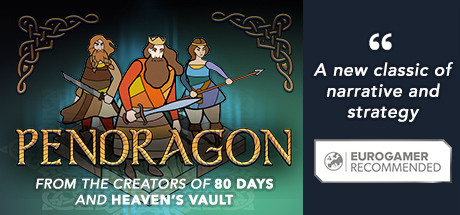
Plain description of Pendragon would be to say it's a narrative board game and call it a day with that alone. Thing is, I find myself wishing there was more to gameplay included other than choosing methods of movement as you go about boards and claim tiles before reaching the exit. Avoiding dangers along the way primarily comes down to keeping in mind how opposition can move. You choose from multiple characters, each with their own reasons for getting involvement in Arthurian legend after the Round Circle gets broken up by Mordred. Strong evocative writing really brings the setting to life and provided ticking off those two boxes is a major seller for you then Pendragon just might be something to keep an eyes on. For my own taste I think the game itself may be too simple to carry the narrative burden writers took upon themselves. Unless there's some major hike in complexity not featured here.
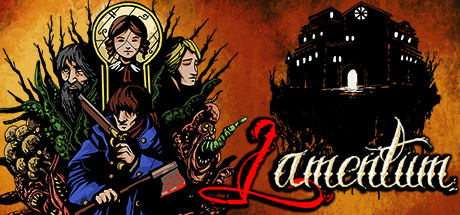
Lamentum demo may have had bigger impact on me purely because I haven't been into survival horror since, well, PS1 days, but what is shown is true to those roots. Getting the big names out of the way it definitely has that “3x3 inventory management and ink saves” from Resident Evil yet I would say general approach to scarce combat and seemingly psychological story draws from Silent Hill just as much. 2D pixel presentation is something it has in common with some other indie horror takes I've seen over the years. Our love struck protagonist's wife gets sick and with medicine being to no avail he seeks out a controversial doctor's help. Needless to say one night in his mansion and everything's gone to dogs with all hell breaking loose. It would appear game avoids more involved type of puzzles that would require specific knowledge and is content with basic item usage.
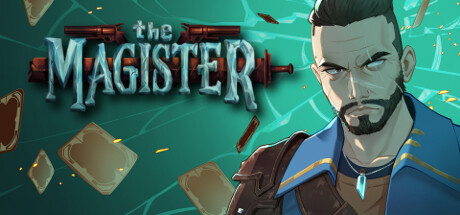
As far as generated story-centric RPGs go I'd say The Magister is definitely a novelty. One that has to be tested beyond the bounds of a demo, though. Doubly so with a case such as this one where you're the eponymous Magister sent to resolve a murder case of another in this far away village. There is no full character creation included here, but choosing between three types is telling enough because personality and flaws play much more in a dialog-heavy game like this one. When you're not talking you're resolving situations and combat alike through card battles. Well, battles may not be accurate, because only in actual physical confrontation is there a tactical RPG aspect whereas in calming someone down you're building up Empathy to lower their Rage level. Flow takes some time to get used to and RNG factors in, but it's certainly simple enough. See whether this presentation grows on you.
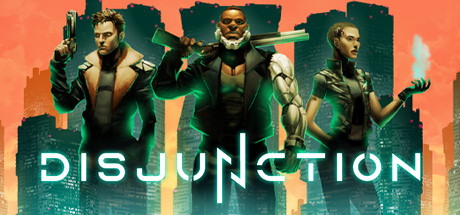
Disjunction seems like something I already played X number of times. Pixel art that can look impressive when not used solely to portray gray corporate corridors, stealth or action where it makes the most sense to choose and commit to one style, and finally that ever present character progression in form of upgrade kits and character traits. It's a cyberpunk story so you're figuring out who framed who, how are corporations involved and all that jazz. I did like how the hyperlink system in dialog is used to divulge more information, but in turn it could have also been used to de-clutter the dialog window. Speaking of stealth over action, because of course, it's amusing the game gears you towards that path from the get-go by giving you a ranged stun ability, ranged AoE stun and guaranteed critical hit on cooldown. That sounds like a formula for non-lethal takedowns to me versus a loud revolver it also sets you up with.
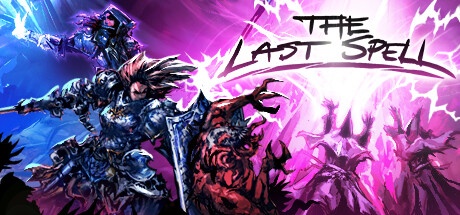
I have to confess not spending that much time with The Last Spell demo after realizing it was a tower defense game, but I think it still warrants talking about. If only because this is a turn-based variant and due to how much stuff there is to do. Seeing as you are managing heroes themselves and the town they're supposed to protect you have some variety. At night monsters lay siege and it falls on you to control the champions, each statistically realized character, in full-on tactical combat. Come daybreak you tally the results, take stock of town's productivity as well as rebuild, train and equip. Some of these segments may appeal to you more or less, though. I found combat to be somewhat bogged down because you're fighting a swarm of enemies so AoE attacks are your friend while said enemies still must be dealt with individually, for example. I can see it getting old quite fast.
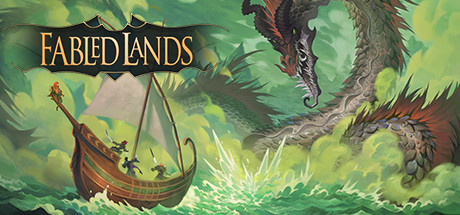
Fabled Lands has hints of story included in this package and impression I got was one of re-visiting locations to progress as you go very similar “take quest, kill enemy, bring the quest item back” cycle. You could say it's a CYOA expanded into a game beyond its origin, one where movement is executed on a map with designated hotspots for interaction. Character creation, where you do get to choose a class, carries its benefits well beyond two main forms of interaction – turn-based combat and skill checks via dice rolls, which resolve everything else. You decide when to stop rolling so RNG effect is kinda mitigated. We're also working with rather rudimentary combat system on a tiny hex grid that makes me wonder why even have it. I do admit being a sucker for fantasy aesthetics game delivers on with very strong King's Bounty vibes adapted for 2D look, though.
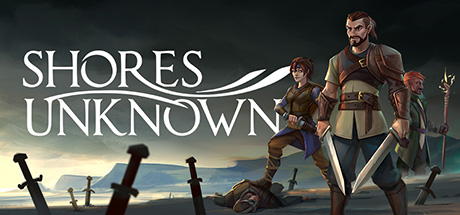
You look at Shores Unknown and see a shabby presentation, but goddamn if it didn't grip me despite all other shortcomings it may exhibit. Graphics are what they are, but they work. If anything they merely clash with the gravity of situations like fending off local bandits and seeing a tide of warships encroaching on a village our brother and sister find themselves holed up in. There's more to it as they advance the work they're on, but demo is quick to throw in couple of major hooks. Turn-based, yes, tactical combat may arguably be the weakest aspect in a sense how... lose it just feels. Characters are constantly fidgeting and maneuvering around so it takes a while to position. Or you lack fine control over attack execution in general. It's one of those cases where you have to give it time to adapt to how the game plays. Spice everything up with standard RPG progression and this may be the one to follow.

Hyouge Mono ( Historical, Comedy, Drama, 2011, 39 episodes ) + ORIGINAL OPENING
How do you even begin talking about Hyouge Mono?
I guess if you really broke it down to bare bone essentials it would be about this 16th century eccentric samurai who's obsessively into art, tea ceremony-related paraphernalia specifically, who keeps making funny exaggerated faces whenever he comes across rare pieces as his samurai duties take him across various war campaigns. Needless to say that would be grossly simplifying a show that isn't afraid to question "must I choose between being a warrior or aesthete?" question and even make it fundamental to its narrative. Talking about story would probably be rather drab because it essentially follows history from a certain point before Nobunaga Oda was betrayed and killed, outcome he kinda laid his own bed for, to later on as his shadow looms large across Japan. It certainly helps if you're familiar with feudal Japanese history to a degree from other sources, like Samurai Warriors in my case, or it could be somewhat messy as names, titles and events are thrown at you without constant reminders you'd get in something like Legend of the Galactic Heroes or such. Character designs thankfully look distinct enough to be memorable as everything from bushy eyebrows and mustaches are not steered away from. Add to that fashion playing a very real role and after a while you'll recognize who's who at a glance. Seeing as HM falls firmly under "characters talking to great lengths" rather than being an action show this is certainly helpful.
Interwoven into all these historical battles and politicking between famous figures lies the idea of imperfection or simplicity which permeates the artistic and merchant circles. Or maybe it's the other way around and martial stuff is just background to aesthetes debating the nature of art, comparing famous pieces and what they want for the future of Japan's culture identity. It is impossible to separate the two because HM treats them as equal in somewhat overblown fashion where people would trade a castle for a famous tea cup masterpiece, for example. Battle for unification of the land is fought both with armies and whether currently popular imperfect art can surpass the influences of perfection from China and alike. There's a funny scene when a Korean ambassador wonders why Chief Adviser is serving him tea in an uneven and broken cup, taking it as an insult and thinking Japan is so poor they don't even have adequate pottery. Needless to say tea ceremony itself plays a big role in the show, but it's not really obsessively dissected the way you might expect it to be. It's more of a medium to get myriad of characters' ideals across, and speaking of which...
Man, these characters. With 39 episodes to work with and tons of people you'd think they'd just get a mention only to end up forgotten, but shocking amount stick around through the years as story advances. Our protagonist Furuta Sasuke starts out as funny comedic relief due to his, well, otaku aestheticism, and I'm glad to say this aspect persists and is definitive pillar of his character, but at the same time he is a serious samurai as befitting the period. I have rarely if ever seen such duality realized to this degree because neither is really played down for the sake of other. He's not even alone at it because many other characters in the show exhibit developments and layers upon layers that would shame main characters in lesser shows. This is further helped by the fact there is no overt villain present and even the darkest of antagonists are only human beings trying to fit their beliefs into a rigid social systems. Hell, at some point Sasuke himself is pushed to distant tertiary role as we follow bigger fish in their own struggles that still relate to protagonist's own. Journey of unifying Japan ensures there's more conflicts and additions to character roster to keep things fresh. It generally airs on stoic wisdom. We learn why people will not actually follow a genuinely just man, but will one who cheats to get what he wants. There are characters arcs spanning from the very beginning to end with show relying on you to pay attention and getting invested.
Amusingly appropriate to how it treats such subjective works of art I would wholeheartedly say Hyouge Mono is a masterpiece in its own right, but one that will sadly remain unapproachable to most anime audience due to its very subject. There are introspections about self-worth and ambitions alike here accompanying what it means to be a samurai constantly aware of your own place in the world while serving as subject to your lord in his whims and demands. I had many laughs with just as many somber moments as people knowingly make wrong decisions or just end up victims of circumstances. Featuring one of the most outstanding endings packing a real emotional punch to the gut from someone you'd least expect it.

Thank you for this; it made me bother to try out some of the demo’s in the showcase.
Glad to be of use. So many demos. I’m just surprised it lead to me clearing out more of my wishlist instead of adding to it.
Thanks for the list, there were some game on here that I missed while browsing the demos. But there were so many to pick from among those 600 game, it was hard to catch them all.
No problem, glad you found it useful. I mainly limited myself to stuff on my wishlist to check out if it’s any good.So many tactical and roguelike RPGs, though. Business is booming.
Yeah clearly, let’s hope at least some of them really deliver in their final version. But my wishlist did grow a lot during this event.
I think the one I’m most intrigued in though is “Fights in Tight Spaces”. Like the aesthetic feels so nice. Kinda reminds me of SuperHot.
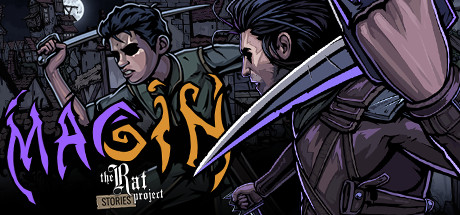
I really wanna try out the demo for Partisans 1941 but I can’t find time due to Desperados 3 :P Thanks for the review. I hope the demo will still be here when the event ends.
How is it? I was glad to hear same studio was tackling the long belated sequel after Shadow Tactics.
It has its issues but it’s also fantastic. I’m loving it. 0 regrets over pre-purchasing it just a few hours before launch.
Is overt violence a viable tool as much as it was in the first game? If you played original Desperados, I mean. I remember that was one distinction over Commandos because stuff like doing synchronized kills with multiple characters so you quickly take take out multiple enemies was something you grew accustomed to.
Definitely not as viable as it was in Wanted Dead or Alive. I don’t play that way either so I never tested firsthand it but I watched streamers. Going loud definitely helps with speedruns but you can’t finish entire missions with such action oriented gameplay if you wanna play normally. Ammo is very scarce and you die in 2 shots. I’m playing on highest difficulty, I don’t know how it is in easier difficulties. Gun skills also have cooldowns so you can’t spam gunshots like you could in Wanted Dead or Alive. I don’t know the state of ammo in easier difficulties. It is something I personally don’t pay attention to.
You can definitely do synchronised kills though. It feels very satisfying to carry out a plan where all your characters elaborately thin down a large group of enemies.
That seems like a major change. I lost count how often you could just camp around the corner in the first game and let the sound of gunshots draw more people towards you to shoot. These do sound like the games you’d want to play on hard simply so you HAVE to use everything.
The real challenge is to play on hardest and limit yourself as much as possible. I am not using guns, ranged attacks (because the only available ranged attack is lethal), no disguise and I don’t use most abilities of a specific character who I believe is OP and trivialises the game (she also doesn’t belong to the theme of the game in my opinion and breaks my immersion). There are also badges promoting that type of gameplay but I already play that way without needing badges, achievements or challenges. The game truly shines when you play that way at least for me personally. It’s even better when you group all those restricting badges together and do it all in one run on hardest difficulty.
Linking an example from my screenshots. Feel free to not check it if you don’t wanna be spoiled with badges for one mission: Screenshot